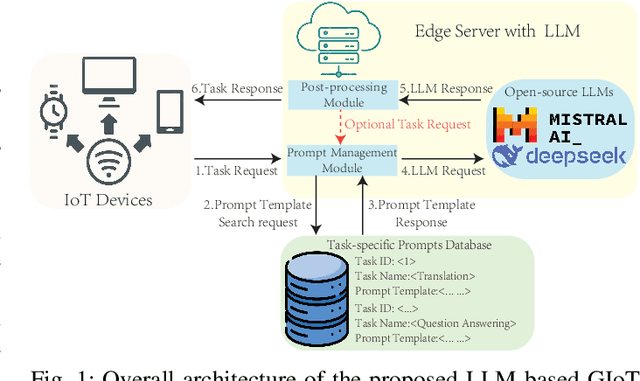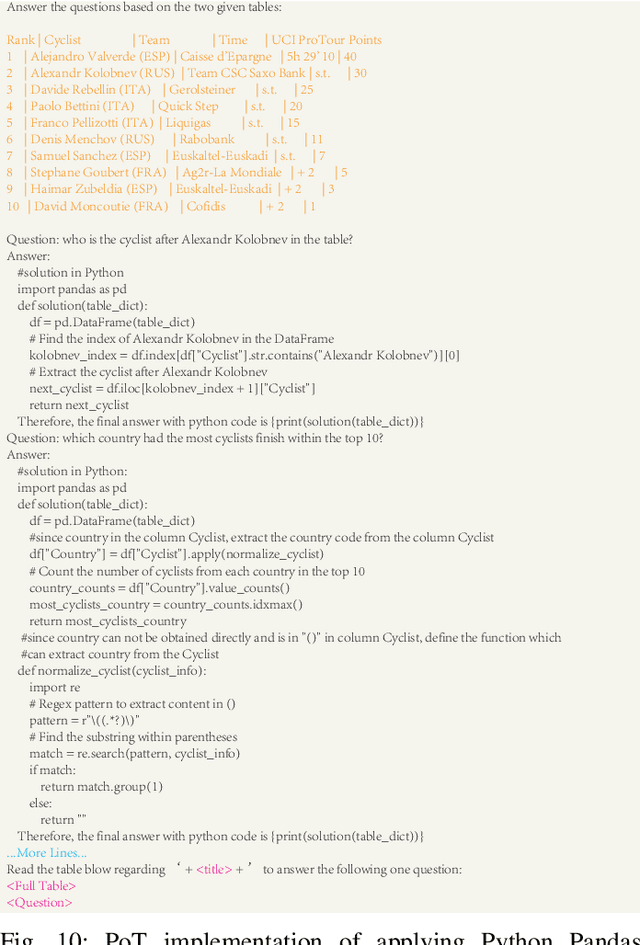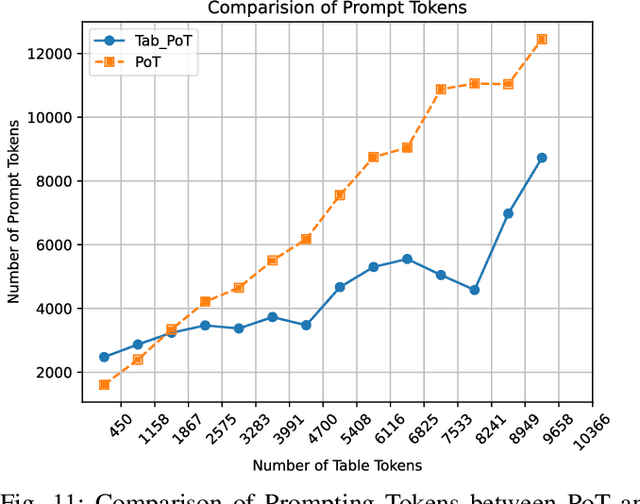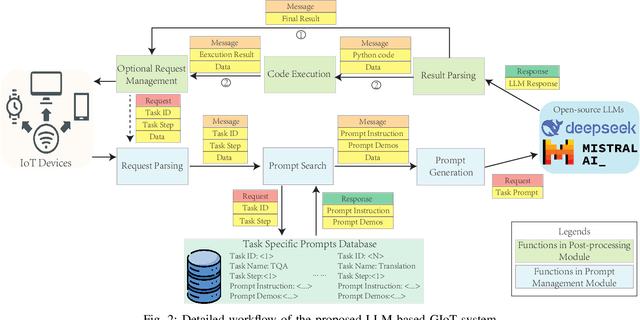Efficient Prompting for LLM-based Generative Internet of Things
Paper and Code
Jun 18, 2024



Large language models (LLMs) have demonstrated remarkable capacities on various tasks, and integrating the capacities of LLMs into the Internet of Things (IoT) applications has drawn much research attention recently. Due to security concerns, many institutions avoid accessing state-of-the-art commercial LLM services, requiring the deployment and utilization of open-source LLMs in a local network setting. However, open-source LLMs usually have more limitations regarding their performance, such as their arithmetic calculation and reasoning capacities, and practical systems of applying LLMs to IoT have yet to be well-explored. Therefore, we propose a text-based generative IoT (GIoT) system deployed in the local network setting in this study. To alleviate the limitations of LLMs and provide service with competitive performance, we apply prompt engineering methods to enhance the capacities of the open-source LLMs, design a Prompt Management Module and a Post-processing Module to manage the tailored prompts for different tasks and process the results generated by the LLMs. To demonstrate the effectiveness of the proposed system, we discuss a challenging Table Question Answering (Table-QA) task as a case study of the proposed system, as tabular data is usually more challenging than plain text because of their complex structures, heterogeneous data types and sometimes huge sizes. We conduct comprehensive experiments on two popular Table-QA datasets, and the results show that our proposal can achieve competitive performance compared with state-of-the-art LLMs, demonstrating that the proposed LLM-based GIoT system can provide competitive performance with tailored prompting methods and is easily extensible to new tasks without training.
 Add to Chrome
Add to Chrome Add to Firefox
Add to Firefox Add to Edge
Add to Edge